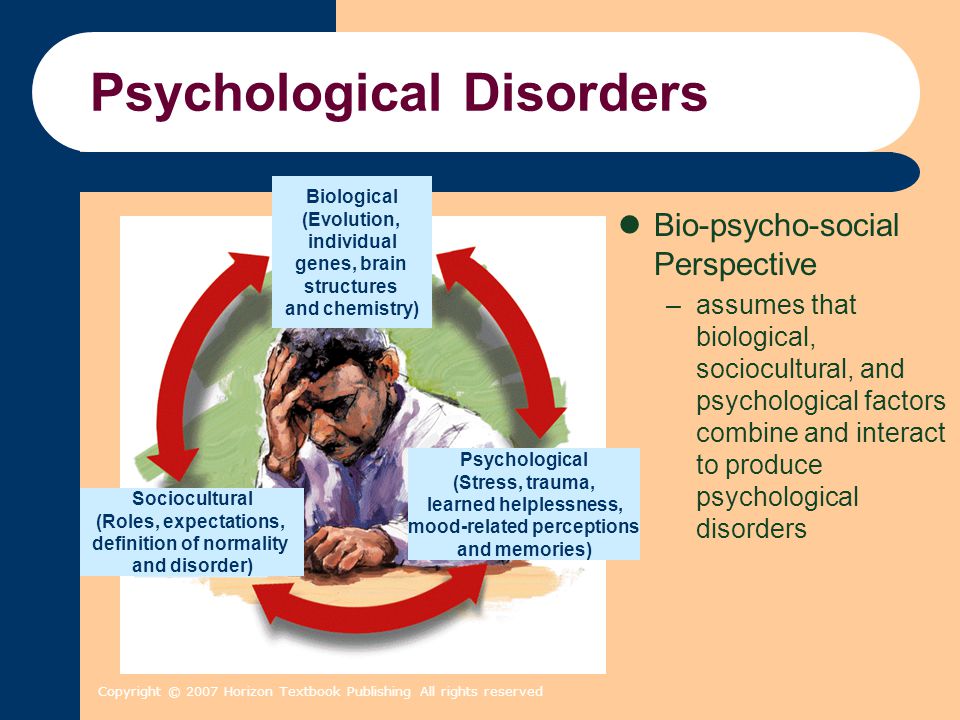Are there more introverts than extroverts
Are There More Introverts Than What We Think There Are?
Reports estimate that between 30-50% of the population are introverted. Whilst, the exact amount is not known, for many people who are introverted, they are made to feel like introversion is not the ideal.
Our workplaces here in the UK, the US, and many other parts of the world seem unfavourably biased towards extroversion. When we look at many workplace practices, the way they are designed make it more challenging for those who are introverted to respond as their best self. Some parts of the world, however, value introversion as a leadership strength.
Introverts typically have a preference for thinking and reflecting, before giving a response. However, if we look at the way that meetings are conducted, the way that interviews are held, the way that networking is typically done, and brainstorming, they don’t give the space for thinking and reflection that many introverts prefer.
People are expected to respond on the spot. Introverts are told to speak up more in meetings, they are misunderstood, and incorrect assumptions made that they are shy or lack confidence. Which, whilst it may be the case for some, is not the case for all.
Are there more introverts or extroverts on LinkedIn?
I recently conducted a LinkedIn poll to see what LinkedIn users identified as when it comes to introversion and extroversion. I wanted to get a feel as to whether there are actually more people who identify as extroverted, or whether it is just an assumption. In the post accompanying the poll, I put the description of introversion, extroversion and ambiversion as defined by the American Psychological Society.
The results were very surprising. There were 598 people who took the poll with 64% selecting introvert, 29% selecting ambivert, and only 8% selecting extrovert.
I wonder, does this then mean that there are more people who identify as introverted than what we think there is? A study by Daniel Feiler and Adam Kleinbaum published in Psychological Science suggests that we over perceive the number of extroverts that are out there.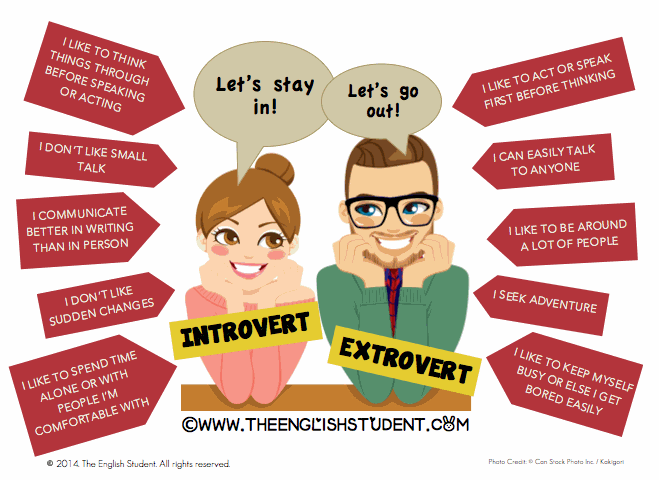 Extroverts gain more friends than introverts do, and the more similar two people’s levels of extroversion are, the more likely they are to become friends.
Extroverts gain more friends than introverts do, and the more similar two people’s levels of extroversion are, the more likely they are to become friends.
The result of this is a network extroversion bias, where our social networks have more extroverts than introverts. With people who are more extroverted having the greatest network extroversion bias than people who are more introverted. They found that social networks were systemically misrepresentative of the broader social environment.
Is there a bias in society?
It raised the question for the researchers as to whether there is a bias in society toward believing other people are more extroverted than they actually are, and whether introverts are better at being able to read social cues and respond to them appropriately.
If we are friends with people who have lots of friends, does this skew our perception and we think there are more extroverts than introverts?
Regarding the results of my poll, it could be that my LinkedIn following is biased towards introverts, given that I write a lot about introversion and the challenges introverts face as leaders. Nevertheless, I was not expecting the number of extroverts to be so low.
Nevertheless, I was not expecting the number of extroverts to be so low.
Why does this even matter?
You may be wondering why this even matters. In an ideal world, it shouldn’t matter whether someone is introverted or extroverted because we need both of these traits in our organisations. Having this diversity of styles makes for a richer dynamic.
However, because so many leaders who are introverted feel like they are in the minority and that there is an unfavourable bias towards them, knowing that there are more like you than what you think, can be empowering. It also means that there is strength in numbers.
Many of our workplace practices (i.e., the ones mentioned above) are outdated and need to change so that they are more inclusive. Utilise this strength in numbers to form a collective voice to bring about this change, and to change the narrative concerning introversion.
What are your thoughts? I would love to know so please let me know in the comments below.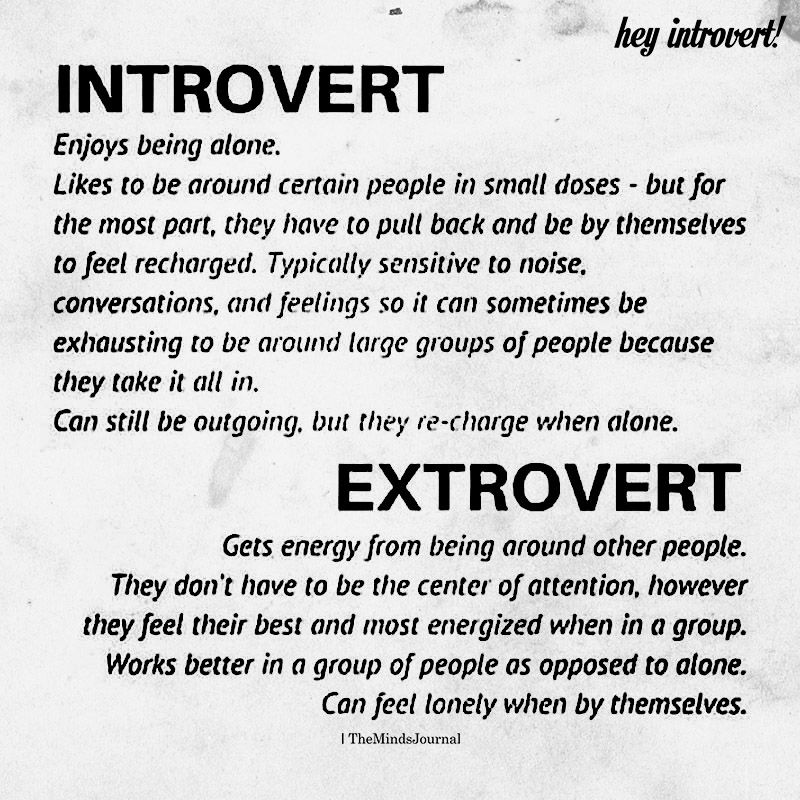
____________________________
Perfectionism is often a challenge for the leaders who I coach and when carrying out research for my book Quietly Visible, 53% of introverted women who were senior leaders that I surveyed said perfectionism was a challenge for them.
On this episode of the Quietly Visible podcast I talk about perfectionism and share tips on how to overcome it. Click on the podcast image above, and open the link in another tab to listen to what I had to say.
____________________________
About MeI am an Executive, Career and Leadership Coach specialising in introverted women who are senior leaders. I've been the featured expert in Women and Home Magazine, Good Housekeeping Magazine, the Telegraph, on BBC Radio 5 Live, named a LinkedIn Top Voice UK 4 years running, and received awards for my work developing women leaders.
Through my work I have helped 1000s of women across the globe to increase their confidence, influence and impact as leaders, and overcome imposter syndrome, increase their executive presence, improve speaking performance in meetings, get a promotion, and much more.
My vision is that ALL women achieve their full potential and become influencers of positive change in their respective fields.
If you are an introverted woman and a senior leader and want to increase your confidence, influence and impact, take my free assessment and get a report identifying areas to develop. You can take the assessment here.
My book Quietly Visible: Leading with Influence and Impact as an Introverted Woman addresses many of the challenges that introverted women face as leaders and shows you how to overcome them. It was listed as one of the 10 best self-development books written by women to read during lockdown by BeYourOwn. You can get your copy here along with a FREE recording of my How to Overcome Imposter Syndrome workshop.
The Majority of People Are Not Introverts or Extroverts
The terms "introvert" and "extrovert" were devised by Carl Jung in the 1920s.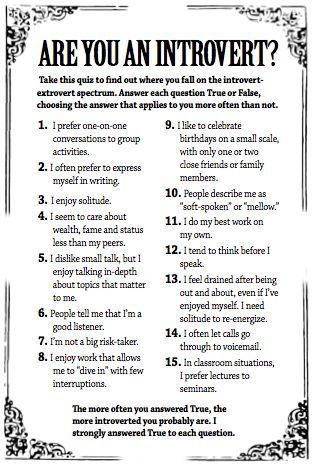 They've since adopted a prominent, if not undying, life of their own. They're the cornerstone of Myers-Briggs personality inventory and one of the Big Five traits. Most simply, Jung conceived of introverts as drawing energy from being alone, while extroverts draw it from their surroundings and relationships.
They've since adopted a prominent, if not undying, life of their own. They're the cornerstone of Myers-Briggs personality inventory and one of the Big Five traits. Most simply, Jung conceived of introverts as drawing energy from being alone, while extroverts draw it from their surroundings and relationships.
But Jung himself conceded, "There is, finally, a third group, and here it is hard to say whether the motivation comes chiefly from within or without." In Psychological Types, Jung wrote that this third group is "the most numerous and includes the less differentiated normal man." In other words, Jung believed that introverts and extroverts are minorities.
Source: Caroline Beaton
Research supports this idea, increasingly pointing to the existence of "ambiverts"—people with balanced, nuanced personalities composed of both introverted and extroverted traits.
In a Wall Street Journal interview, psychologist Adam Grant estimated that ambiverts make up between a half and two-thirds of the population.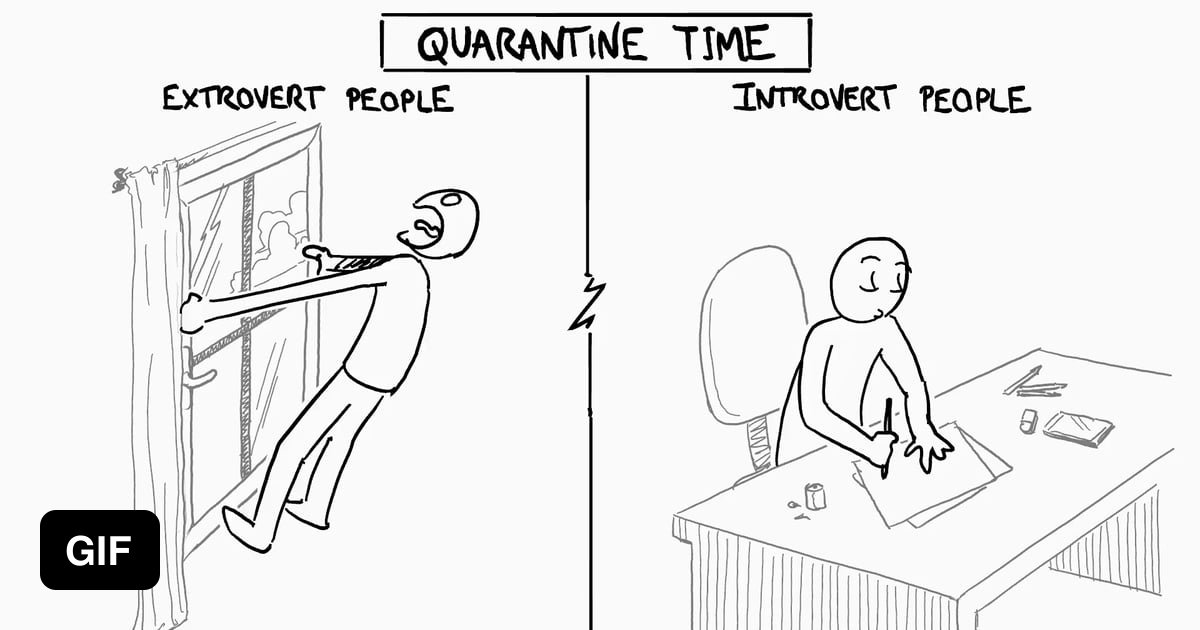 This is good news, because ambiverts win at life and business.
This is good news, because ambiverts win at life and business.
The research-based "ambivert advantage" explains how these individuals combine the best of both sides. In one of several such studies, ambiverts achieved higher sales productivity than introverts or extroverts—in some cases, twice as much. Because ambiverts can listen as well as assert themselves, they're ideal salespeople, co-workers, business owners, and leaders.
To be sure, diehard introverts and extroverts do exist, but they're exceptions, and they may be worse for it. In fact, such extreme leanings could be the result of what psychologist Carol Dweck calls a "fixed mindset."
Over several decades, research by Dweck and others has differentiated between a growth mindset (believing you can cultivate your qualities and personality with effort) and a fixed mindset (the conviction that you have a set amount of intelligence or talent, a fixed personality, and an immutable character).
A recent study positioned a fixed mindset as "self-as-story": You believe you're a certain way; that's just how you are.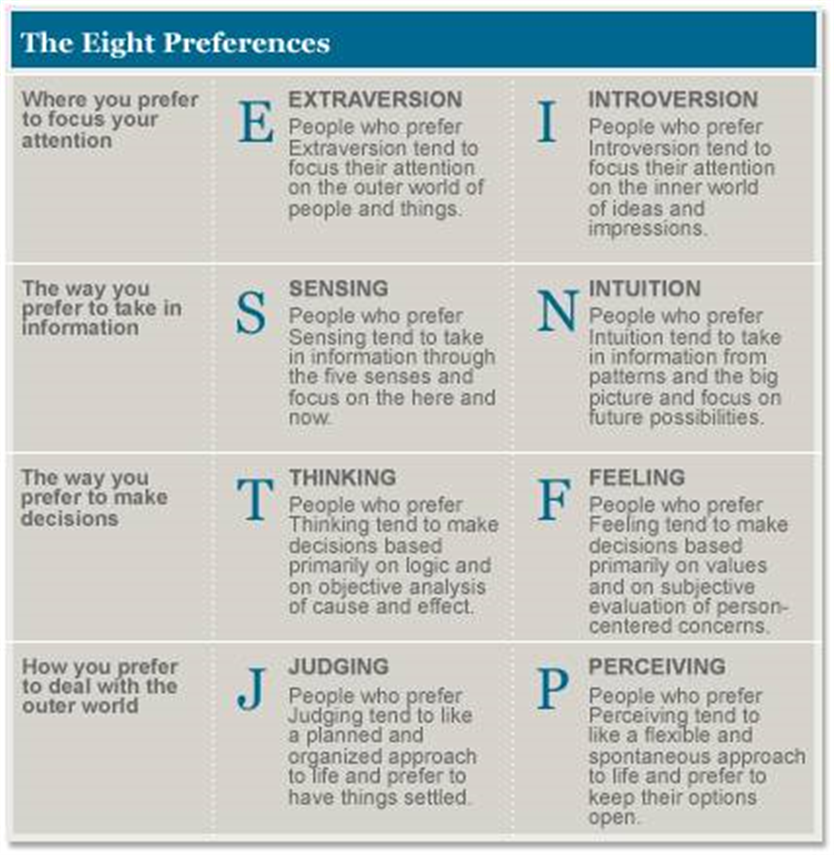 It's the story you tell yourself about you. The study explained, as an example, that "a person who conceptualizes themselves as introverted may have difficulty recognizing or remembering their own extroverted behavior, or they may avoid potentially stressful social situations and come to live in an increasingly insular world."
It's the story you tell yourself about you. The study explained, as an example, that "a person who conceptualizes themselves as introverted may have difficulty recognizing or remembering their own extroverted behavior, or they may avoid potentially stressful social situations and come to live in an increasingly insular world."
After taking some personality tests in college, I decided I was an introvert. But then I noticed that the more I saw myself as an introvert, the more introverted I became. At 18, I thought I was the life of the party. By 25, I had almost convinced myself that I was psychologically incapable of speaking in public.
"Self-as-story" tendencies are associated with reduced well-being, particularly if those self-conceptualizations are negative. Fixed mindsets are correlated with reduced performance, as well as lower self-esteem, creativity, resilience, and self-awareness.
Still worse is that these stories about ourselves aren't true.
The uncovering of ambiverts is part of a larger investigation suggesting that healthy personalities are situational; some experts even think personality is a myth.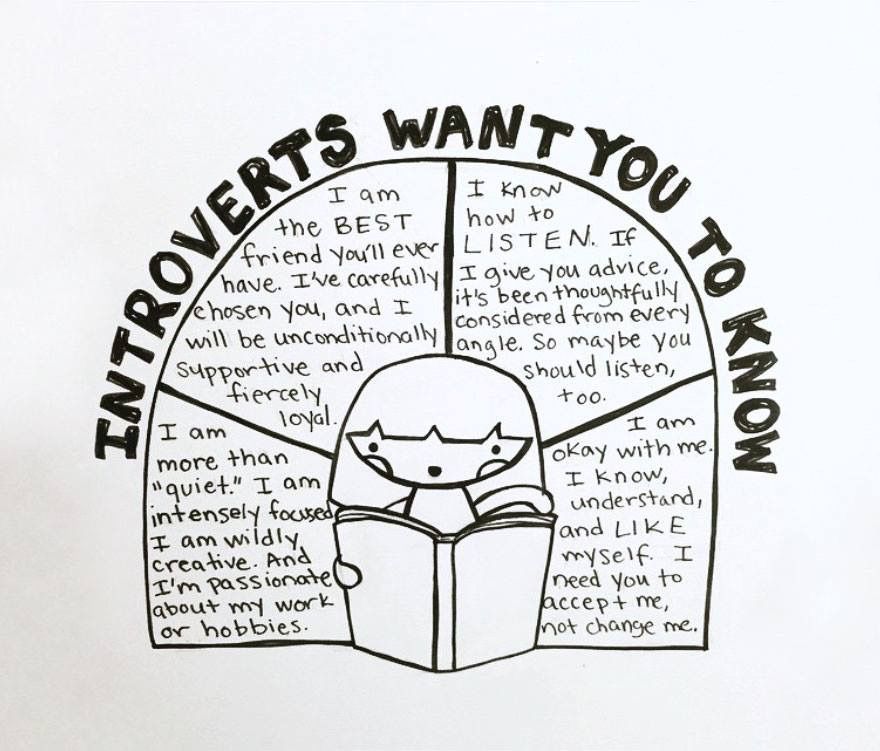 We're inconsistent. We change more than we think we will, depending on what happens. There may be no permanent, fixed "me" to expose, introvert or extrovert.
We're inconsistent. We change more than we think we will, depending on what happens. There may be no permanent, fixed "me" to expose, introvert or extrovert.
Research shows that we feel how we act—when we smile, we feel happier—and that we act how we believe (if we believe we're introverted, for example, we act that way). These are adaptive, evolutionary responses. The problem is when our beliefs are based on the results of one-off, multiple-choice personality quizzes, and not our everyday reality.
We don't need to understand ourselves so much as we need to understand our situations. We need to ask, "Does this meeting call for sitting back, listening, and taking notes like an introvert would, or does it require confidence, assertiveness, and charisma like an extrovert would display?" Or, "How can I combine the two approaches here effectively?"
Ambiverts recognize that identifying with one trait exclusively is exhausting. You probably do, too: Recall a situation in which you had too much of what your introverted or extroverted personality stereotypically wants.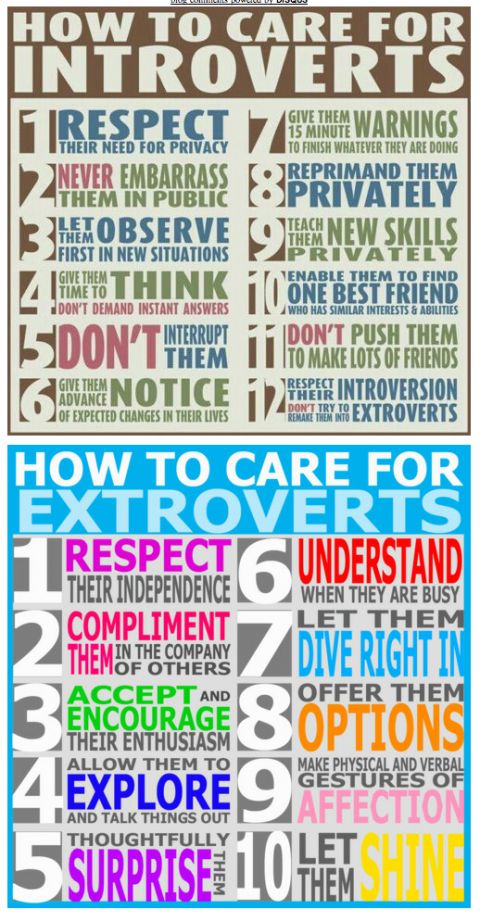 Jung quipped that anyone who was truly 100 percent extraverted or 100 percent introverted would be a "lunatic."
Jung quipped that anyone who was truly 100 percent extraverted or 100 percent introverted would be a "lunatic."
We need both. We are both.
Source: Andrey Arkusha/Shutterstock
Of course, people's personalities differ. We repeatedly learn this. But the ongoing introvert/extrovert debate has had a polarizing, restrictive effect on our potential to see and accommodate what a given scenario needs—or even what we need. Over time, our success shrinks to a minute sphere of what we imagine that our personality types can "handle."
If we resist the labels that others try to pin on us, why do we give them to ourselves?
Hopefully continued research on ambiversion and situational personality can shed light on what introversion and extroversion really are—self-limiting beliefs.
Extroverts, introverts, ambiverts: who they are and how to work with them
The company's team consists of a large number of people with different characters. In order for an HR specialist to effectively interact with employees, understand their motivation, know which work is comfortable for them and which is not, you need to be able to determine the personality type of specialists.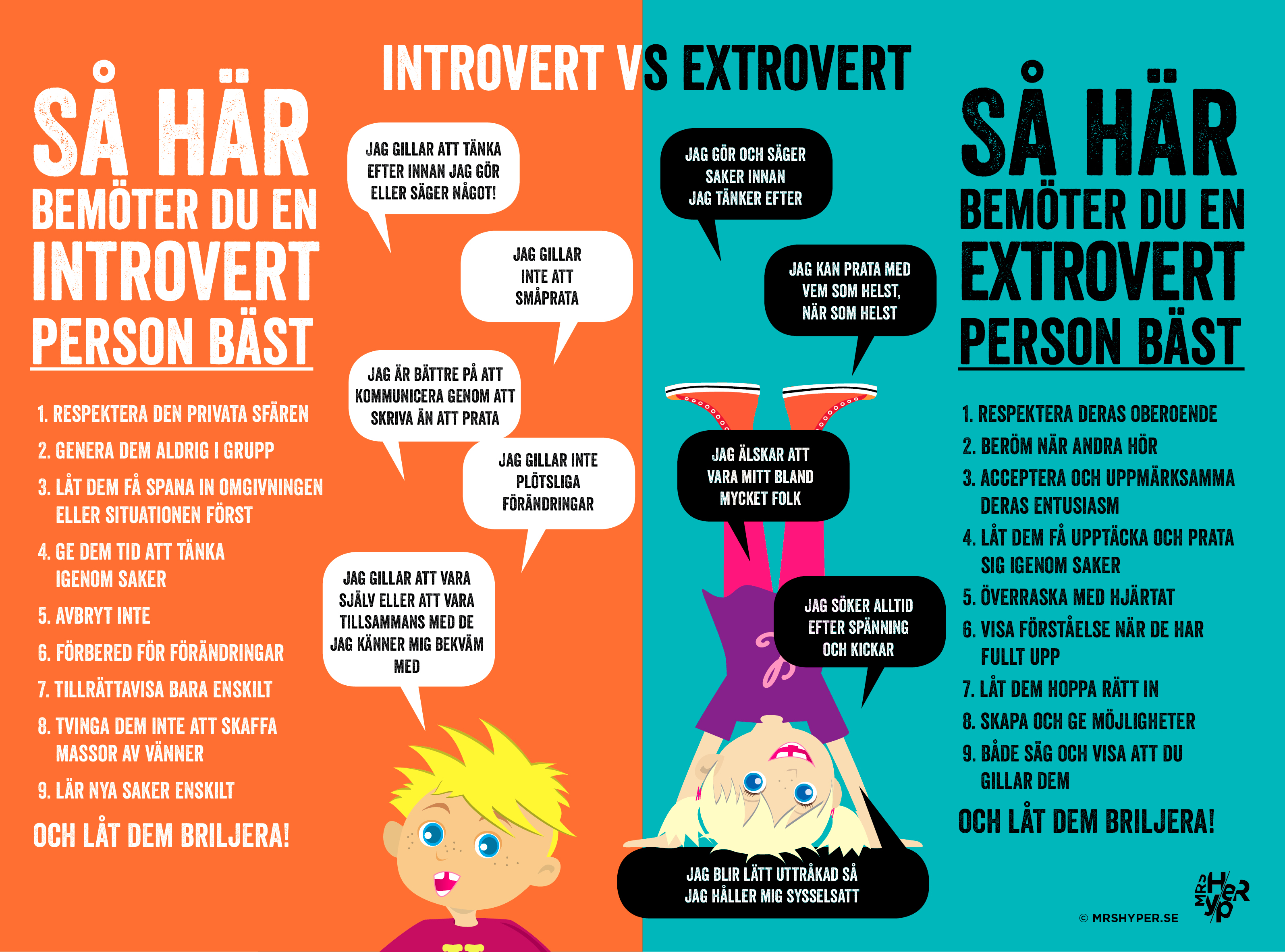 There are three types of personality types: extroverts, introverts and ambiverts.
There are three types of personality types: extroverts, introverts and ambiverts.
In our new article, you will learn what these types of people are and how to interact with them for productive work.
Extrovert: Distinctive Characteristics and Secrets of Interaction
Extroverts are the “lighters” of the company that are open to the world and directed towards people. They are very sociable and easily get along with people. As a rule, extroverts quickly get used to the new team and can carry on any conversations.
Extroverts are filled with energy if there are a lot of people around them. The book Cognitive, Affective, and Behavioral Neuroscience states that there are two types of extroverts:
- Active. Their key characteristics are assertiveness, success leadership, perseverance. Active extroverts like to be the center of attention and very often occupy leadership positions.
- Affiliates. Friendly, open and sincere guys.
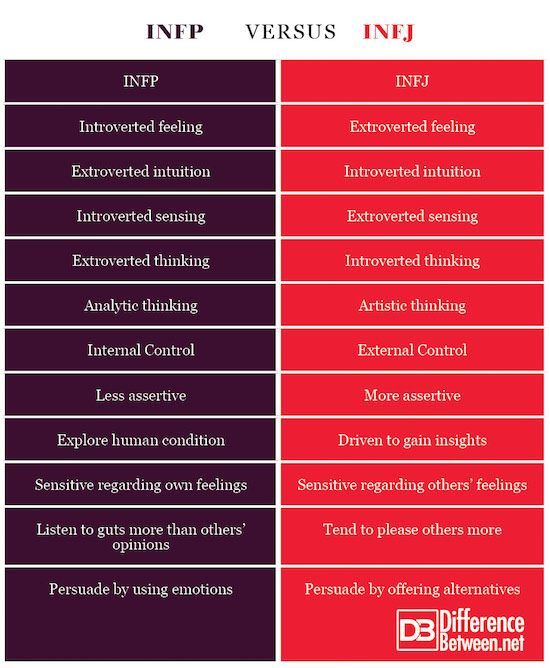 They easily find contact with new people and value their loved ones very much, because relationships mean a lot to them.
They easily find contact with new people and value their loved ones very much, because relationships mean a lot to them.
The main characteristics of extroverts:
- love to be the center of attention;
- do not like routine and monotony, they prefer variety;
- know a lot of people and make contact with strangers easily;
- they are driven by interesting work tasks, they are happy to take on a variety of complex tasks, but only if they are interested;
- first they speak, then they think;
- prefer to talk and talk about themselves than to listen to the interlocutor and try to understand his problem.
How to work with extroverts and set them tasks: 4 tips from the Hurma team
1. When setting tasks, it is very important to give them time and the opportunity to reason and ask interesting questions. Ask the extrovert for feedback on the task, let him tell you how he understood it, say deadlines and expected results.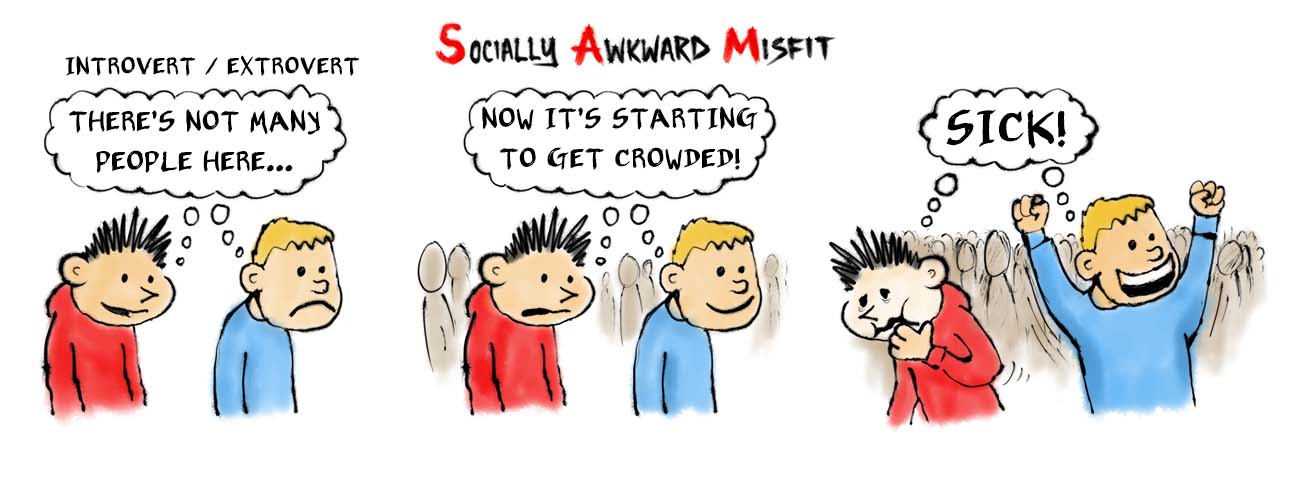
2. Extrovert employees should be assigned to projects where they can learn something new for themselves. In addition, it is important to create a “competitive” environment for them, since it is these conditions that motivate them the most.
3. Give them the opportunity to be in the spotlight, be a mentor to someone, lead a discussion in which they can take the initiative and take action.
4. As a rule, extroverts have adequate self-esteem and are self-confident. But despite this, it is important to praise them and celebrate their achievements.
Introvert: distinctive characteristics and secrets of interaction
An introvert is the exact opposite of an extrovert. Such people focus more on their inner world than on the outside. Introverts are not very sociable, but at the same time, very pleasant interlocutors, if you talk with them on topics that interest them. In addition, if you find an approach to them and make friends, you can learn a lot of interesting things, since these are people with a rich inner world.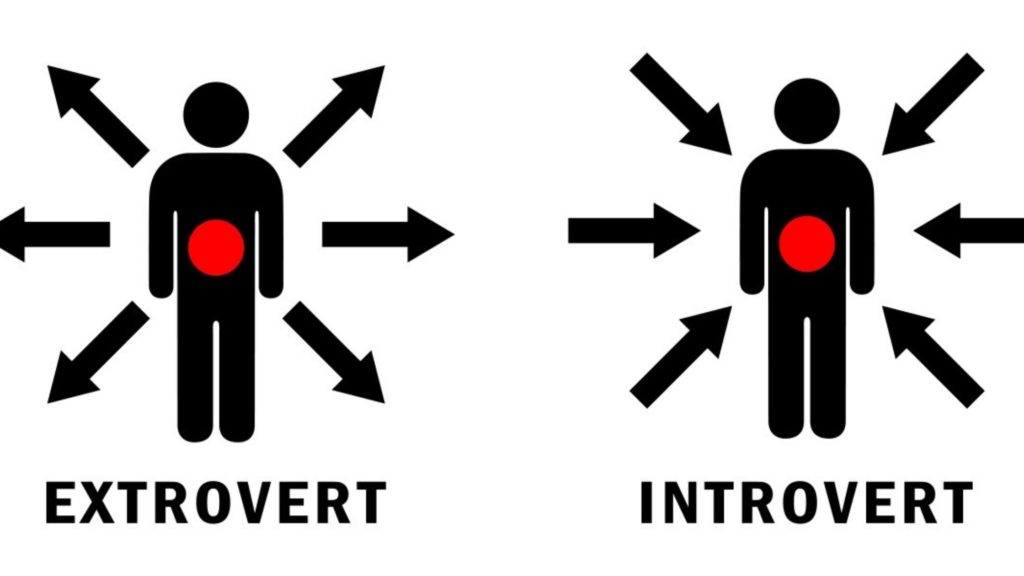
They place the main emphasis on their own knowledge and experience, and not on the views of other people. An introvert likes to read, plan things, work more productively in a calm environment. You can recognize an introvert by the expressions: "I need to think", "I need to analyze", etc.
How to work with introverts and set them tasks: tips from the Hurma team
1. Introverts think a lot and that is why they cannot always answer the question quickly. Give them time to think things over, formulate an answer, study more information. If introverts do not know something, they study the issue, delving into the details.
2. Be prepared to answer a large number of questions, because it is important for introverts to understand the manager's analytics, why the task needs to be done in this way, on what grounds this or that decision was made.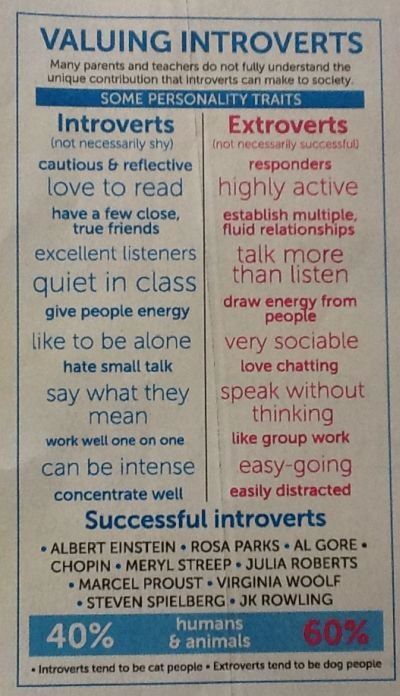
3. Introverts have one feature similar to extroverts - they also need praise and recognition of their merits. And in principle, praise is important for everyone, do not spare praise, well, really 🙂
4. While working with an introvert and setting a task, accurately calculate the time frame, explain step by step how and what needs to be done.
5. These are not the kind of people who need to be constantly monitored. If you want to work with an introvert, give him more freedom of action.
6. If you do not have time to communicate with them personally, use e-mail or corporate messengers.
Ambivert: distinctive characteristics and secrets of interaction
Ambivert is the golden mean between a calm introvert and a hyperactive extrovert. Depending on the specific situation, they can behave both as introverts and as extroverts. If they are uncomfortable, they immerse themselves in themselves; if they like the surrounding conditions, ambiverts actively communicate with everyone.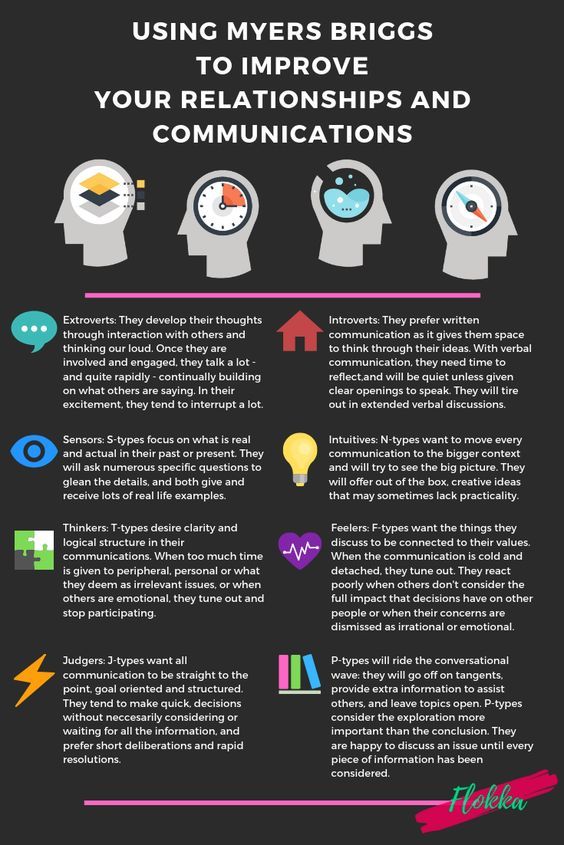
These people value both social interaction and solitude, when they can be alone and think. Barry Smith, director of the Human Psychophysiology Laboratory at the University of Maryland, claims that 68% of people are ambiverts.
The main signs of ambiverts:
- quickly join a new team and do not experience discomfort when communicating with strangers;
- have empathy, understand and listen to the emotions of other people;
- they have a wider social circle than introverts;
- they connect with people more deeply than extroverts.
How to work with ambiverts and set them tasks: tips from the Hurma team
1. Ambiverts can work with both routine and interesting tasks. Therefore, if there is monotonous work in the list of tasks, they will do it.
2. If you have difficult tasks, you can entrust their implementation to ambiverts. They are easy-going and not afraid to take risks.
3. Ambiverts are not afraid of public speaking at events, make many contacts and quickly win over. So they are the first who want to participate in various activities.
So they are the first who want to participate in various activities.
4. While working with them, remember that they, like introverts, think a lot, try to analyze all moments and aspects in order to make an informed decision.
Flexibility is key
It is important for HR managers and leaders to consider the personality types of employees in order to entrust them with projects in which they will perform at their best, and not vice versa. For example, if you want an extrovert to do a great job, don't give them a task that requires a lot of attention to detail.
Encourage introverts to be active when they are active, make sure that there are not too many extroverts and they do not annoy their colleagues.
But, most importantly, remember that there are very few people who are of the extraverted or introverted type. So put in the forefront not what type you or your colleagues are, but flexibility and mutual respect.
Extrovert: who is it, signs, difference with introverts
Dividing people into extroverts and introverts began about 100 years ago. We tell you who an extrovert is, what are its disadvantages and advantages, and how such a person can succeed in a career
We tell you who an extrovert is, what are its disadvantages and advantages, and how such a person can succeed in a career
Who is an extrovert
An extrovert is a sociable, expressive person with an active social position. His experiences and interests are directed to the outside world. Extroverts meet most of their needs through interaction with people. So they replenish energy, receive information and rest.
Extraversion is one of the main personality parameters. This is evidenced by the five-factor model of personality - the "Big Five". According to this theory, personality consists of five main dimensions: extraversion, agreeableness, conscientiousness, emotionality, openness. Each of them has two poles. For example, extraversion is the opposite of introversion. Some people may lean towards one particular extreme, but most fall somewhere in between. In modern psychology, experts don't divide people into extroverts and introverts. According to research, each of us has traits of both personality types.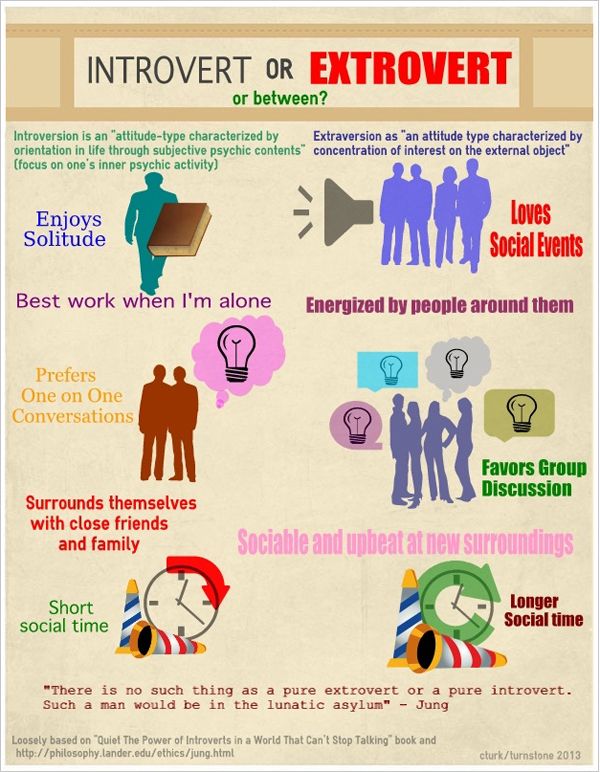
The history of the concept
The division of people into introverts and extroverts, as well as the terms "extroversion" and "introversion" was first proposed by the German scientist Carl Jung in the 1920s. According to Jung, extraversion is a behavioral type, and an extrovert person concentrates his interests on society. Introversion, on the other hand, is characterized by a focus on one's own thoughts and feelings.
As early as 1923, Jung recognized the existence of a third type, ambiversity, but did not include it in his typology of intro-extraversion. Carl Jung typed people in the direction of their life energy - libido. So, for extroverts, attention and pleasure is directed to objects, and for introverts, personal experience and subjective experiences are of paramount importance.
Jung's research was subsequently developed by the German-British psychologist Hans Eysenck. He developed his own three-factor theory of personality, in which he singled out three main personality dimensions.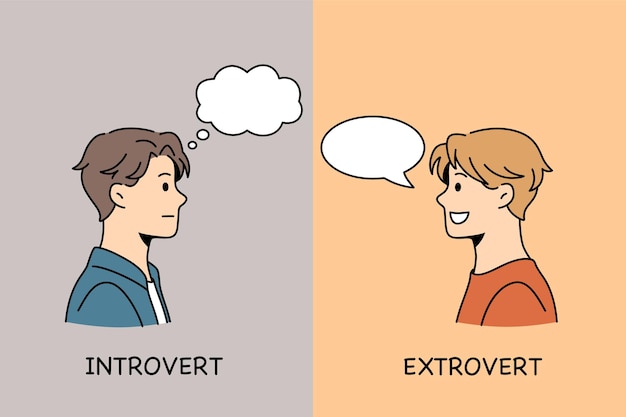 One of them is "introversion-extroversion". Eysenck argued that a person directs energy inward or outward - on other people, which determines the type of personality.
One of them is "introversion-extroversion". Eysenck argued that a person directs energy inward or outward - on other people, which determines the type of personality.
It is generally accepted that there are more extroverts in the world than introverts, but there are no exact statistics. Psychologists suggest that extroverts are more often "in sight", hence the conclusion that there are more of them. But adapted introverts can easily behave like extroverts.
Barry Smith, director of the Human Psychophysiology Laboratory at the University of Maryland, says that 68% of the world's population are ambiverts. Such people combine the traits of extraversion and introversion.
Signs of an extravert
American psychologists identify such signs of extraversion as:
- the need to communicate regularly;
- love of public speaking;
- habit of speaking without thinking;
- feeling uncomfortable in silence;
- love for noisy companies;
- pronounced leadership qualities;
- desire to please everyone;
- desire to always be in the spotlight;
- pleasure from working in a team;
- ability to talk about one's feelings;
- the presence of a wide circle of communication.
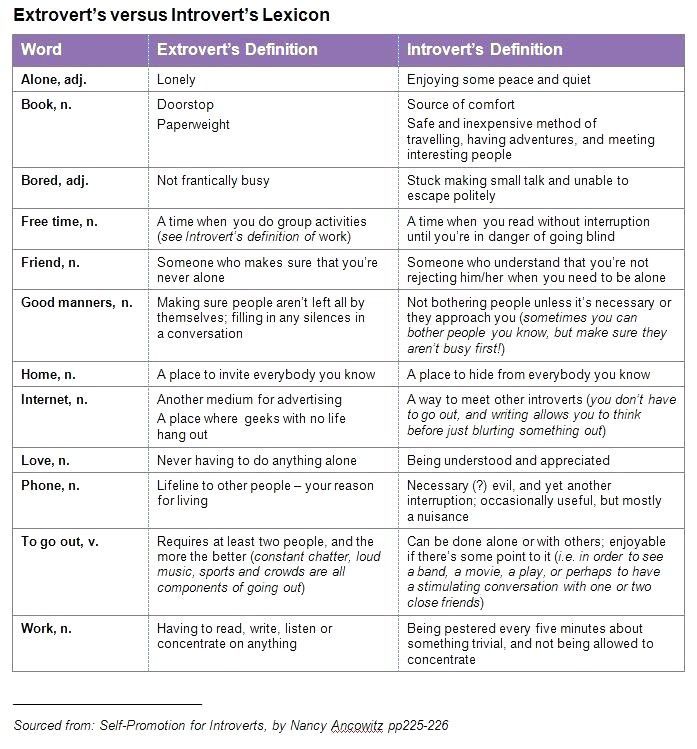
In 2015, American experts described two types of extroverts:
Agentive extroverts are persistent, purposeful, stubborn people. They care about career and personal success.
- At work . They occupy leadership positions. They take on maximum responsibility, but do not always rationally distribute forces. Such people are able to quickly navigate and make decisions, but rarely think through steps ahead. It lacks patience and perseverance.
- Alone with yourself . It is difficult for agentive extroverts to sit still, as their nature requires constant dynamics, new emotions and victories. It is important for such people to feel that something is happening around them.
- In the circle of close people. Openly share emotions and experiences.
- With strangers. Grab attention thanks to self-confidence. Becoming the leader of a group of strangers is a challenge for such people.
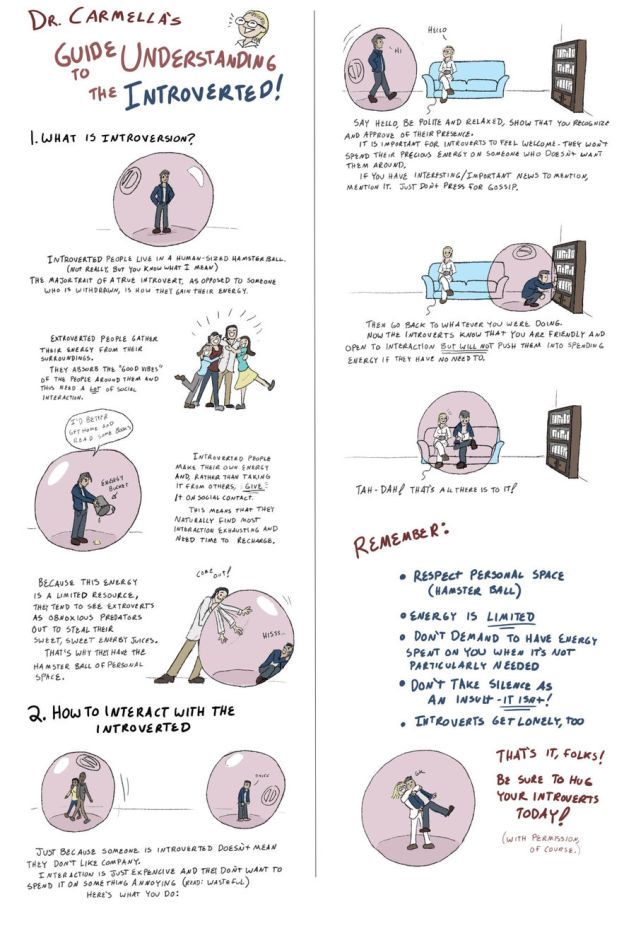 An extrovert does not get tired of constantly being with someone, on the contrary, for him it is a comfortable environment.
An extrovert does not get tired of constantly being with someone, on the contrary, for him it is a comfortable environment.
Affiliative extroverts or "social butterflies". For these people, communication is the most important thing. Affiliative extroverts easily establish contact with people, they tend to have many friends and acquaintances. Among the main values for this type of people are warm relationships.
- At work. Team players. The best option for them is if the work is related to communication: many meetings and calls, business trips; responsibilities include organizational tasks and supervision of team members. For affiliative extroverts, the microclimate in the team is especially important.
- Alone with yourself. Feel discomfort. In this they are similar to agentive extroverts - they restore energy through communication with people.
- In the circle of close people.
 They try to build trusting relationships. Do not be afraid to talk about feelings and experiences. This is influenced by their main priority - high-quality communication.
They try to build trusting relationships. Do not be afraid to talk about feelings and experiences. This is influenced by their main priority - high-quality communication. - With strangers. Quickly find a common language due to openness and sociability.
Pros and cons of extraversion
Extraversion helps in building a career, but it also has a negative impact on everyday life and communication with people. This was found out by American researchers during a survey in 2012. They compiled a general list of the pros and cons of extraversion.
Pros
- Perseverance. The ability to achieve what you want even in difficult circumstances.
- Self-confidence. This quality helps to start a conversation with strangers or people of higher status.
- Flexible thinking. Quickly navigate and adapt to new circumstances - the routine of an extrovert. Without this, a person of this type can get bored.

- Ability to make quick decisions. But this advantage has a downside - the decision will be rash. A typical extrovert does not like to think about something for a long time, weigh the pros and cons and find the most suitable option. He just knows how to make decisions quickly.
- Openness.
- Ability to communicate.
- Potential for quality public speaking.
- The ability to switch quickly.
- Ability to grasp on the fly.
Cons
- Obsession. Excessive persistence can turn into a significant disadvantage.
- Selfishness turning into narcissism. An extrovert always wants to be the center of attention. He is interested in leading the process and eventually receiving praise. This can grow into hypertrophied vanity.
- Restlessness.
- Inability to plan.
- Tendency to not see things through to the end. The reverse side of the ability to quickly switch from one task to another.

- Forgetfulness.
- Distracted attention.
- Tendency to quickly change interests and priorities.
The difference between an extrovert and an introvert
An introvert is a person who tends to accumulate energy within himself. He chooses solitude and creation, concentrates on his own interests and intentions. Communication is not a priority for an introvert.
Colin DeYoung, a psychologist at the University of Minnesota, described the differences in the brains of extroverts and introverts. He found that extroverts have a more active dopamine reward system, so they need constant stimulation from the outside. That activity that brings pleasure to the extrovert and helps to satisfy the needs, the introvert irritates, and sometimes depresses. Differences in the work of the reward system lead to the fact that introverts are the least prone to sociability and an active lifestyle. But they have a more “quiet” neurotransmitter, acetylcholine, that works faster.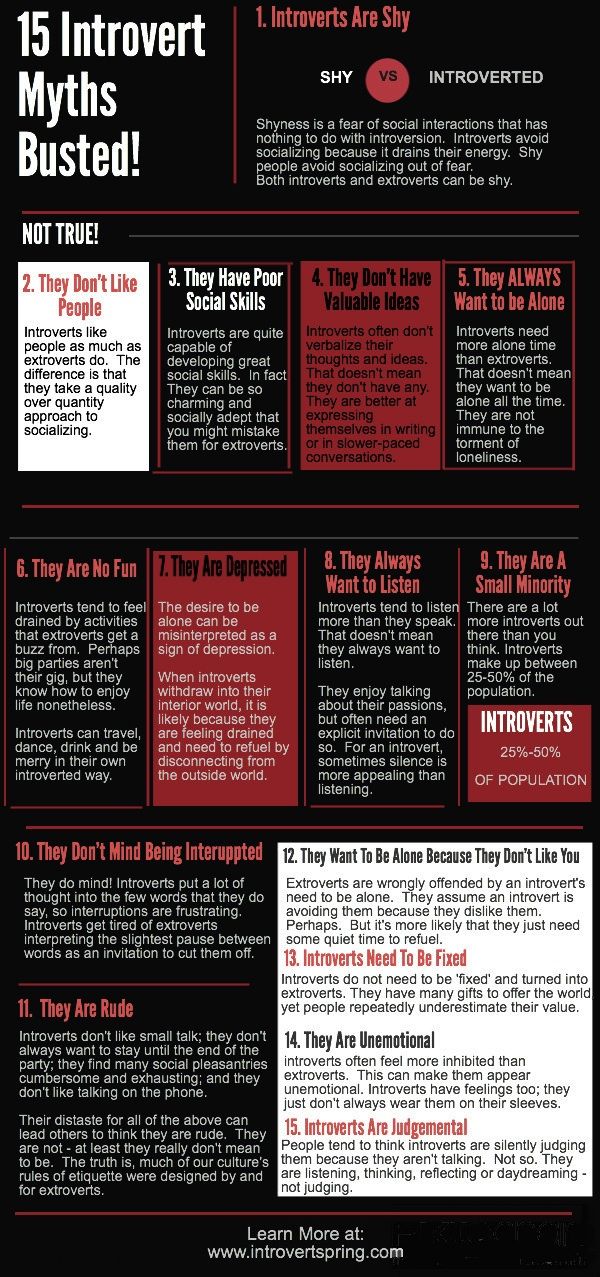 He is responsible for all human movements. Acetylcholine brings the brain out of a state of rest when it is necessary to act, and vice versa, inhibits the transmission of impulses when it is time to concentrate.
He is responsible for all human movements. Acetylcholine brings the brain out of a state of rest when it is necessary to act, and vice versa, inhibits the transmission of impulses when it is time to concentrate.
Other American researchers use the term "adventurism gene". Extroverts are distinguished by the desire to get new experiences. For an introvert, on the contrary, interaction with people, activity, quickly turns into overexcitation and fatigue. Therefore, unlike extroverts, they are less prone to sociability and an active lifestyle.
To determine what type of personality you have, take the TED test (or this one in Russian, but you have to answer more than 200 questions). And with the help of the Myers-Briggs indicator, you can more specifically determine your personality type and strengths.
Is it possible to change your personality type?
Susan Kane in the book Introverts. How to use the features of your character "writes:" Introversion and extraversion are formed in the first months of life or even during pregnancy.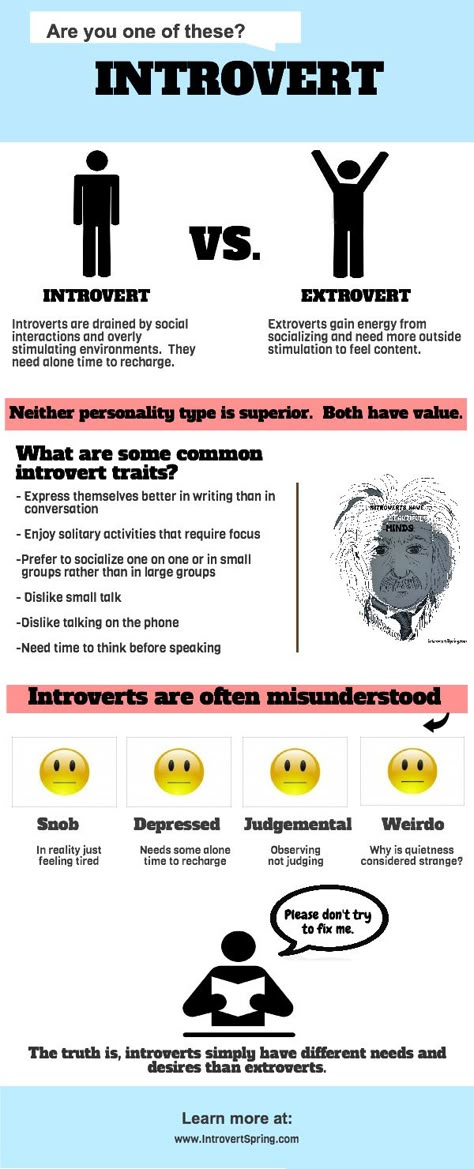 By the age of four months, a baby can most likely be assigned to one of two groups. Genetics play a significant role in determining personality, but people can become more or less extroverted.
By the age of four months, a baby can most likely be assigned to one of two groups. Genetics play a significant role in determining personality, but people can become more or less extroverted.
To develop extraversion , researchers offer to participate in interest clubs or engage in favorite hobbies in a group. So it will be possible to expand the circle of communication and interests, make new acquaintances and improve communication skills with each lesson.
To reduce extraversion, scientists recommend practicing meditation to give yourself the opportunity to focus on your own thoughts and feelings. It pays to spend more time alone. Walk in nature, read, cook and eat alone, reflect. The bridge from extrovert to introvert is journaling. Writing allows you to better understand your own feelings.
How to raise an extroverted child?
Psychotherapist and communication trainer Ivan Pritulyak notes that extroverted teenagers are prone to aggressive behavior and disregard for social norms.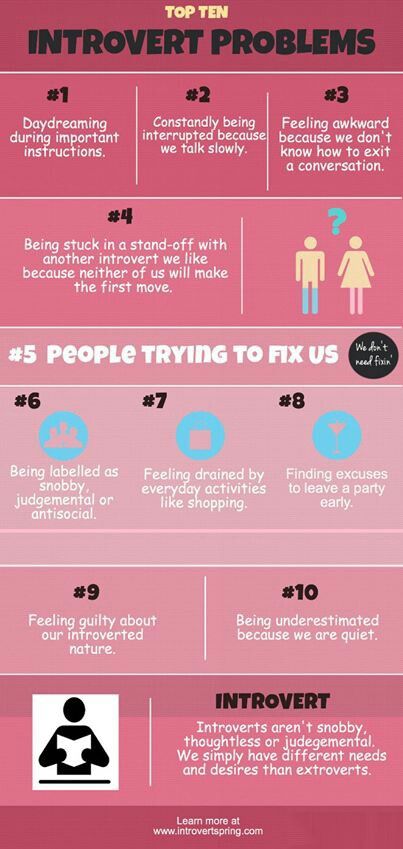 This is accompanied by complex and strong emotions of the child. The expert recommends talking to children about how they feel and why they may behave aggressively. Every day a child experiences a full range of feelings. For the development of a healthy psyche, this entire spectrum must be recognized and experienced.
This is accompanied by complex and strong emotions of the child. The expert recommends talking to children about how they feel and why they may behave aggressively. Every day a child experiences a full range of feelings. For the development of a healthy psyche, this entire spectrum must be recognized and experienced.
“It is highly likely that introverted parents will have an extroverted child. In this case, parents should try to maintain their peace of mind and not move away from the child, ”says Pritulyak.
Introverts are good listeners. It is important for extroverts to discuss what is in their hearts, to experience emotions. “An introverted parent is able to build a trusting and close relationship with an extroverted child by listening. The child will say everything himself, ”adds Pritulyak. He should be able to communicate when and with whom he wants - ask a stranger about something on the bus or say hello to neighbors. Such communication can confuse an introverted parent, but it is enough to ensure that communication does not threaten or harm the child.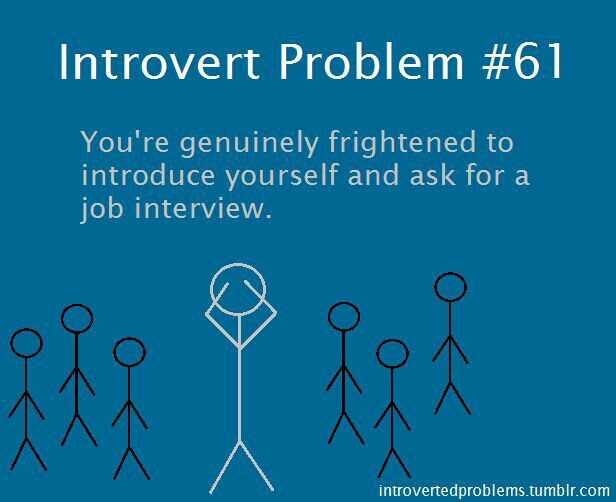 It is also important to provide extroverted children with regular physical activity. Such a child needs to expend energy, and not accumulate it in himself.
It is also important to provide extroverted children with regular physical activity. Such a child needs to expend energy, and not accumulate it in himself.
Where it is better for an extrovert to work
It is important for an extrovert to find a place where the hierarchy levels are clearly defined in order to methodically rise to a managerial position. According to Russian psychological studies of pedagogy, our social role depends, among other things, on the type of personality. The need for frequent communication directs the extrovert to work in areas where it is necessary to contact people.
Jobs for extroverts:
- HR specialist. For the typical extrovert, this is the perfect job. For a recruiting manager, every working day consists of communicating with dozens of job seekers.
- Journalist. The applicant must be, first of all, sociable. Extroverts have good potential for building social connections.
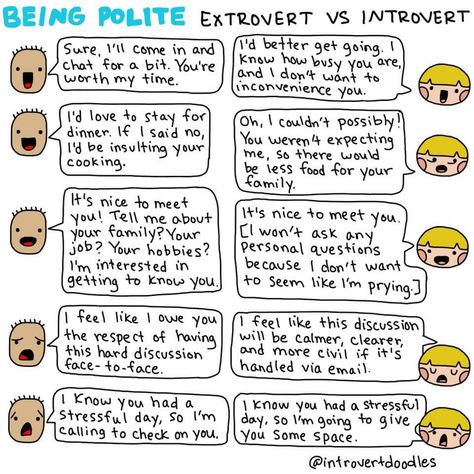
- Teacher. Being the center of attention is the most comfortable state for an extrovert. This is one of the tasks of the teacher - to keep the attention of students. And each lesson is a small public performance.
- Tour guide. He should become an interlocutor for a dozen tourists. In addition to the fact that you need to establish a dialogue with the group, the guide should be the center of attention throughout the tour, giving information about the sights. It's also a kind of public speaking.
- Sales manager. Its main task is to interest a potential buyer. This is not only the art of communication, but also the ability to convince.
- Event leader. Such work can leave psychological trauma if a person is not ready for a long public speaking. In addition, the presenter must constantly stir up the interest of the audience and keep its attention on himself.
Find out if you can find a job and build a career according to your temperament and personality type, read here.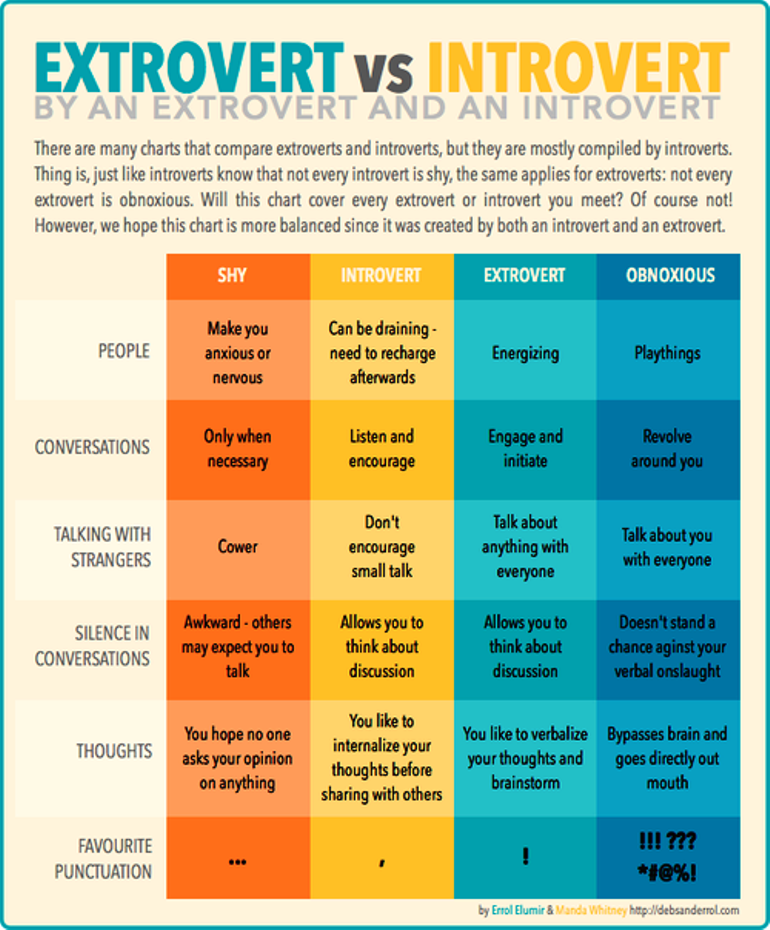
Is an extrovert a bad leader?
The leader must be sociable, self-confident, energetic and active. However, scientists from Harvard, Stanford and the University of Chicago found the opposite. Their research shows that introverts perform best in leadership positions because they:
- think over their words and decisions, which prevents them from taking rash actions;
- are good listeners. An extrovert often ignores opinion from the outside and makes a personal intuitive decision, because he is not able to concentrate and carefully think about anything. Due to the developed critical thinking and the habit of "digging deep" introverts have a good understanding of people, their actions and motives;
- is more effective than extroverts in leading the process in times of crisis. Introverts do not sow panic, but approach problems rationally. This is good for the team.
The introvert's management style is called "servant leadership".










